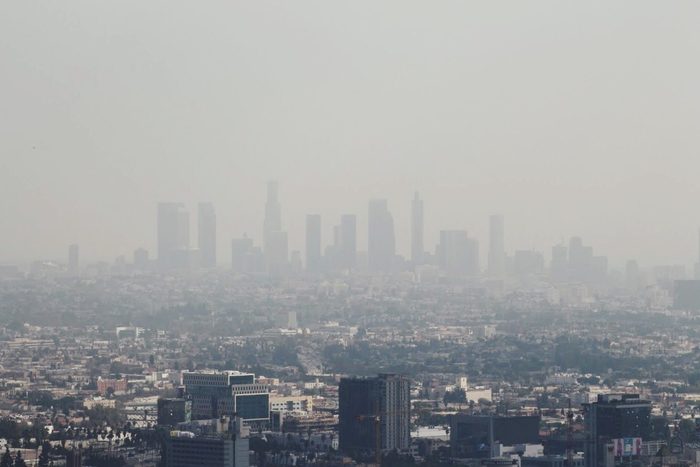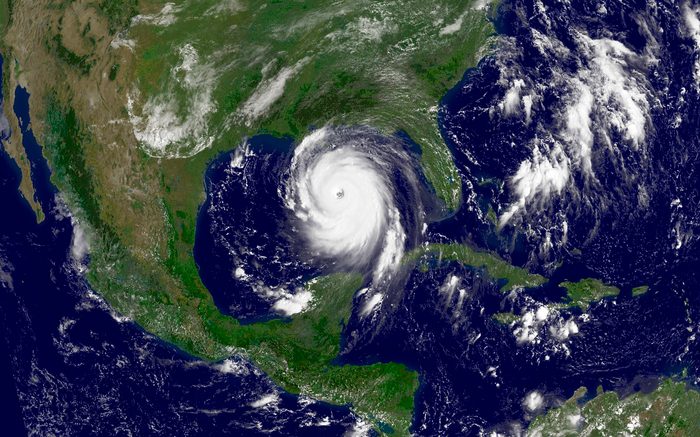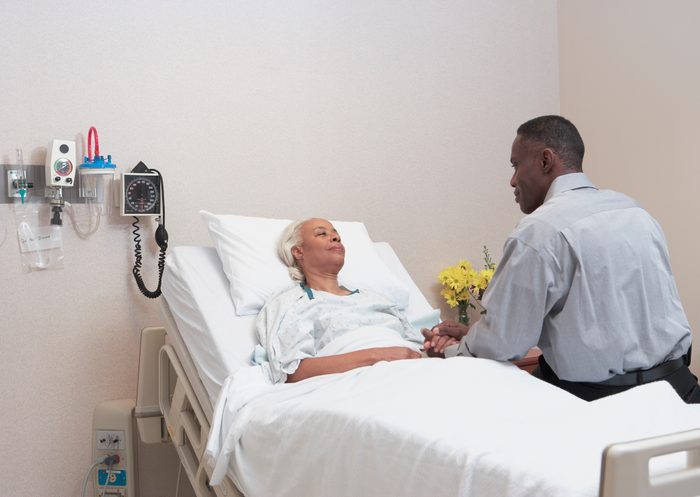Heart attack causes
There are many risk factors that can affect your chances of having a heart attack, ranging from your family health history to so many of the lifestyle choices you make. A few of these—like your genetics and your age—are out of your control. But you have lots of influence over many behaviors that can affect your risk of heart disease.
Some of the major risk factors for heart attack are smoking, being overweight, not getting enough exercise, type 2 diabetes, and eating a diet that’s not heart healthy. That means an unhealthy eating pattern over time, including consuming too many calories, sugary foods and drinks, as well as not choosing healthy fats over saturated fat.
But some behaviors might not be so obvious. Maybe you get mad easily or you spend most of your time in front of a computer. Or it could simply be that you live in a smoggy place or don’t get enough sleep every night.
These are some things that are associated with a higher risk of heart attack, rather than a proven cause. (They’re not the same as risk factors, like diet.) However, the more of these things that you do, the more your risk may add up.

You get angry over the littlest things
Tend to morph into the Incredible Hulk when you’re upset? Those fiery emotions may increase your risk for a heart attack, according to research published in 2015 in the European Heart Journal.
Researchers at the University of Australia questioned 313 patients who had suspected heart attacks about their anger levels before the onset of symptoms. They found that patients were 8.5 times more likely to have a heart attack in the two hours following an intense outburst of anger, defined as “very angry, body tense, clenching fists or teeth” compared with other times when they were less angry.
The findings suggest that if you have an episode of intense anger, it could increase your risk of heart attack in the subsequent hours. Here are the 9 best ways to control your anger and avoid getting to that point.

You spend most of your time in front of a screen
Yes, that includes working on your computer. A study published in the Journal of the American College of Cardiology in 2011 found that people who watch TV or work on a computer for four or more hours a day have more than double the risk of a cardiovascular disease event, like a heart attack, than those who spend less than two hours looking at a screen.
Long periods of sitting deplete the body’s supply of lipoprotein lipase, an enzyme that breaks down fat and prevents clogged arteries. If you spend most of your day plopped behind a desk, take a brief walk after every 20 minutes or try a standing desk. You can burn 30 percent more calories when you stand than when you sit. (Don’t miss these 15 doctor-approved tips to prevent heart disease.)

You log less than six hours of sleep each night
Many adults struggle to get the recommended seven to nine hours of sleep each night, but consistently missing that mark could be bad for your heart. A study published in the Scandinavian Journal of Work, Environment & Health found that Japanese men who got less than six hours of sleep were five times more likely to have a heart attack than men who slept seven or eight hours a night. Don’t miss what causes heart disease and how you can prevent it.

You live in a smoggy area
Smog is just as bad for your heart as it is for your lungs. For a 2016 study published in Environment International, researchers used hourly air pollution measurements in South Boston to determine how exposure to particulate matter (small combustion particles that come from fuel burning and vehicle emissions) affected patients in this area who had heart attacks.
They found that exposure to high concentrations of air pollution increased the likelihood of a heart attack by 48 percent in the two hours before patients first experienced heart attack symptoms. The risk went up to 69 percent when people were exposed to high levels of air pollution for 24 hours before the onset of symptoms. (Here are 9 more things you should know about heart attacks before you have one.)

It’s daylight saving time
Several studies have found that the risk of heart attack goes up the first few days after daylight saving time starts, reports the American Heart Association. One study by Swedish researchers found about a 6.7 percent greater risk of a heart attack in the first three days after we spring forward. U.S. researchers tracked hospital records and found a 24 percent increase in heart attacks on the Monday after the spring time change. The risk slowly dropped the rest of the week.
Since the total heart attack counts for those weeks were not drastically different from other weeks, researchers determined that the time changes didn’t necessarily make the heart attacks happen, but rather made them likely to occur sooner than they otherwise would have. This is probably due to disrupted sleep-wake cycles and increased stress at the start of a new week of work.

You’re divorced
Divorce can cause literal heartache and be a heart attack risk factor. Researchers at the Duke University School of Medicine conducted an 18-year-study of nearly 16,000 men and women between the ages of 45 and 80 who had been married at least once. Every two years, researchers assessed the participants’ marital status and overall health.
Divorced women were 25 percent more likely to have a heart attack than those who stayed married. Women who had two or more divorces were 77 percent more likely to have a heart attack.
As for the men, the risk of heart attack stayed the same regardless of whether they were married or divorced—at first. But if they divorced at least twice, their heart attack risk increased by 30 percent.

You live in an area with extreme temperatures
Studies show that both extreme cold and extreme heat can put people at risk for heart attacks. Using data from cardiac patients in the Worcester Heart Attack Study, a study in the journal Epidemiology found that exposure to temperatures lower than 17 degrees F in the two days prior to a heart attack increased patients’ risk by 36 percent.
On the other end of the spectrum, British researchers found that once the temperature reaches 68 degrees F, each increase of 1.8 degree F increased the risk of heart attack by 2 percent over the next one to six hours. On the first day of a hot spell, that risk jumps up to 6.5 percent per 1.8 degree F increase.

You lived through a natural disaster
Having a hurricane or earthquake devastate your hometown not only affects you mentally and emotionally but physically as well. Researchers at Tulane Medical Center in New Orleans studied the number of patients that were admitted with heart-related problems in the years after Hurricane Katrina hit the area in 2005.
They found that the number of people admitted to the hospital for heart attacks increased three-fold in the 10 years after Katrina, compared to the number of admissions in 2003 and 2004. Patients were also more likely to have heart attack risk factors after the hurricane, including high blood pressure, coronary artery disease, and diabetes.

You didn’t go to college
The four or more years you spend in college may be good for more than a diploma. A study published in the International Journal for Equity in Health analyzed data from more than 267,000 Australian men and women.
The results showed that people with no certifications or degrees were more than twice at risk of a heart attack compared to those with a university degree or higher. Bottom line: The more time you spend in school, the lower your risk for a heart attack.

You got the flu
The American College of Cardiology has long recommended that those with heart disease get annual flu shots, but research shows just how important that shot is.
A 2018 study in the New England Journal of Medicine looked at 364 people hospitalized for heart attacks and found that they were six times more likely to have a heart attack in the week after being infected with the flu.
If you’re feeling under the weather, look out for these 7 silent signs you’re having a heart attack.

Your mother had a heart attack
Or maybe it was your father, or grandparent, or siblings. No matter which relative it was, the American Heart Association says that heart disease and risk factors for heart disease are strongly linked to family history.
There are at least 67 sites in the DNA sequence, or variants, that can increase your risk of a heart attack. Each of these variants raises your risk of cardiovascular disease by about 10 percent. But if you have more variants, your risk adds up.
The good news is, having a family history of heart attacks doesn’t guarantee you will have one. Actively maintaining a healthy lifestyle can lower your overall risk. (Start with these 30 proven ways to reduce your risk of heart disease.)